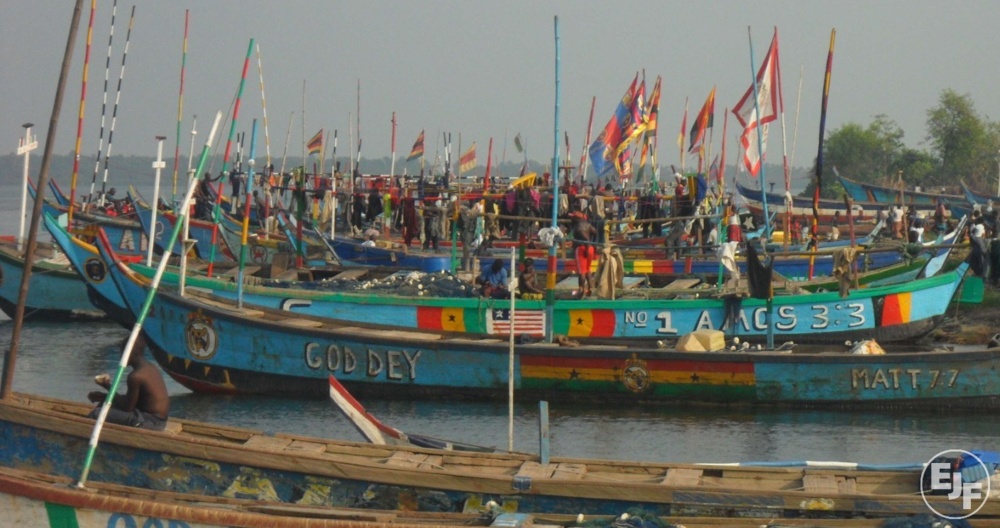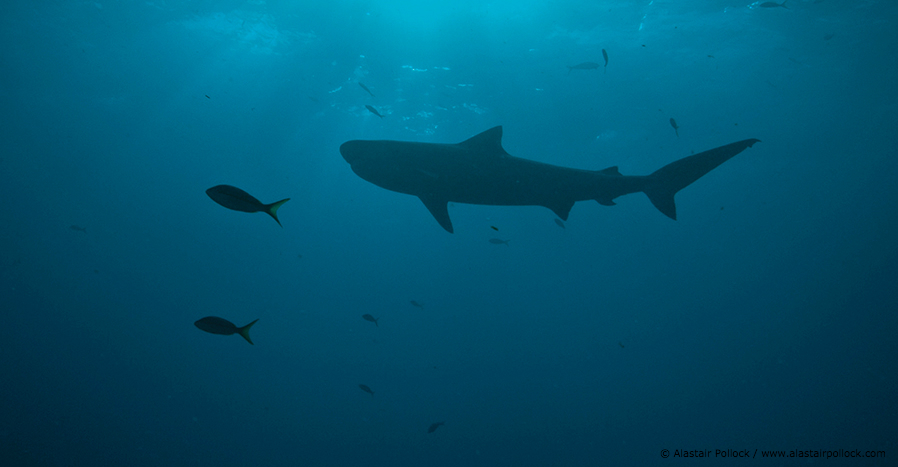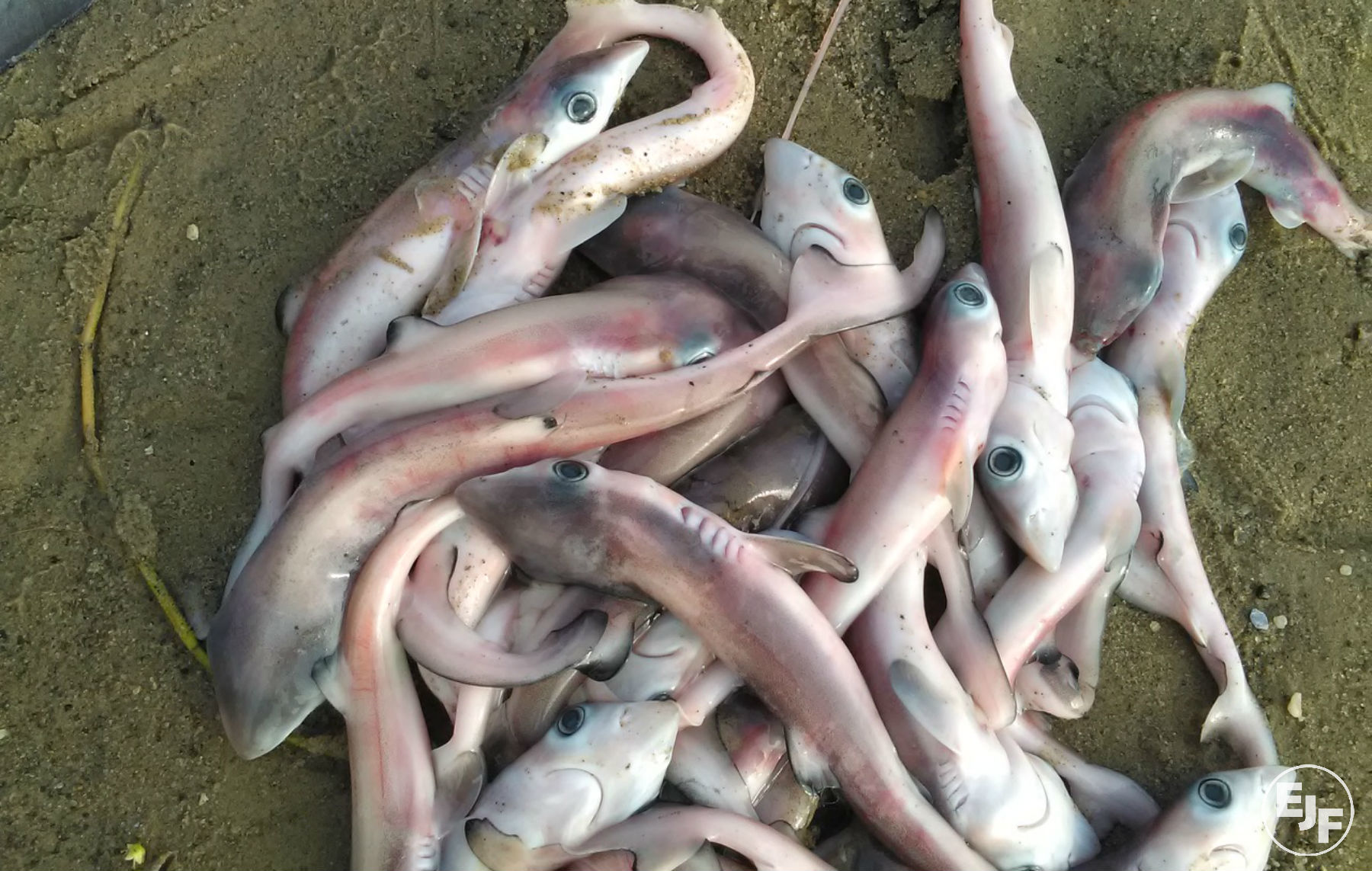
Empowering Liberia’s fishing communities to protect ocean ecosystems
Today, EJF is delighted to be launching Communities for Fisheries, our new project in Liberia, which is enabled by the generous funding support of the European Union. We’re deeply appreciative of the opportunity to work with the Liberian Government, communities and local networks and especially alongside the EU Delegation.
In line with EJF's vision of securing legal, sustainable and equitable fisheries in Liberia, the project will run for the next four years, during which time EJF’s local and international teams will empower communities to co-manage fisheries and reduce illegal fishing, building lasting sustainability and social equity into Liberia’s fishing sector. The project is part of the EU-Liberia Agricultural partnership programme which aims, among other things, at supporting a competitive and environmentally sustainable value chain for inland and coastal fisheries in Liberia.
An estimated 80% of Liberia’s population is dependent on fish for essential dietary protein. Small-scale fisheries also provide employment for 33,000 people in the country and play a critical role in the economy. But illegal fishing is threatening this vital source of food and livelihoods.
Trawlers fishing illegally in Liberia’s waters are able to catch vast amounts of seafood, impoverishing local communities and destroying marine ecosystems. However, fishing communities can act as custodians of the resources they rely on, safeguarding the sustainability of Liberia’s waters.
EJF’s new project aims to help them to do exactly that, providing training, workshops and community engagement, building capacity for fisheries ‘co-management’. In particular, the project will engage and empower women, who make up 60% of the fisheries workforce, and must be included in decision-making to ensure long-term sustainability.
As well as providing the government with a source of specialist local knowledge, co-management with coastal communities will provide vital monitoring in the fight against illegal fishing.
If local people are given the skills and equipment to collect evidence, such as taking good quality, geotagged photos of trawlers fishing illegally, they can create an effective line of defence for Liberia’s fish populations. Once this evidence is collated, the government will be able to effectively prosecute the perpetrators, deterring illegal fishing in the future.
Training in ‘citizen science’– another aspect to the project – will mean that important data on fish catches can be recorded at the landing beaches, providing crucial input for sustainable management.
Beyond coastal communities, the project will engage the Liberian government, national and international media, and academics. Co-management will not only benefit communities, but also policymakers who have limited resources at their disposal. The data collected by citizen scientists will allow academics to research the health of marine wildlife populations and draw up effective fisheries management plans.
EJF has a long, successful history in Liberia, having worked in the country for almost a decade, one of the few NGOs that remained throughout the Ebola crisis. Our staff on the ground already work with many fishing communities on our sharks and rays project, which last year saw the Liberian government commit to develop a national plan of action to protect these iconic creatures that are essential to maintaining the health of our oceans.
This gives us a unique position of strength to start the new project, and a real chance to create lasting positive change for Liberia’s priceless ocean ecosystems and its people. Our sincerest thanks to the EU Delegation in Liberia for enabling us to launch Communities for Fisheries today.
SIGN UP FOR OUR EMAILS AND STAY UP TO DATE WITH EJF

